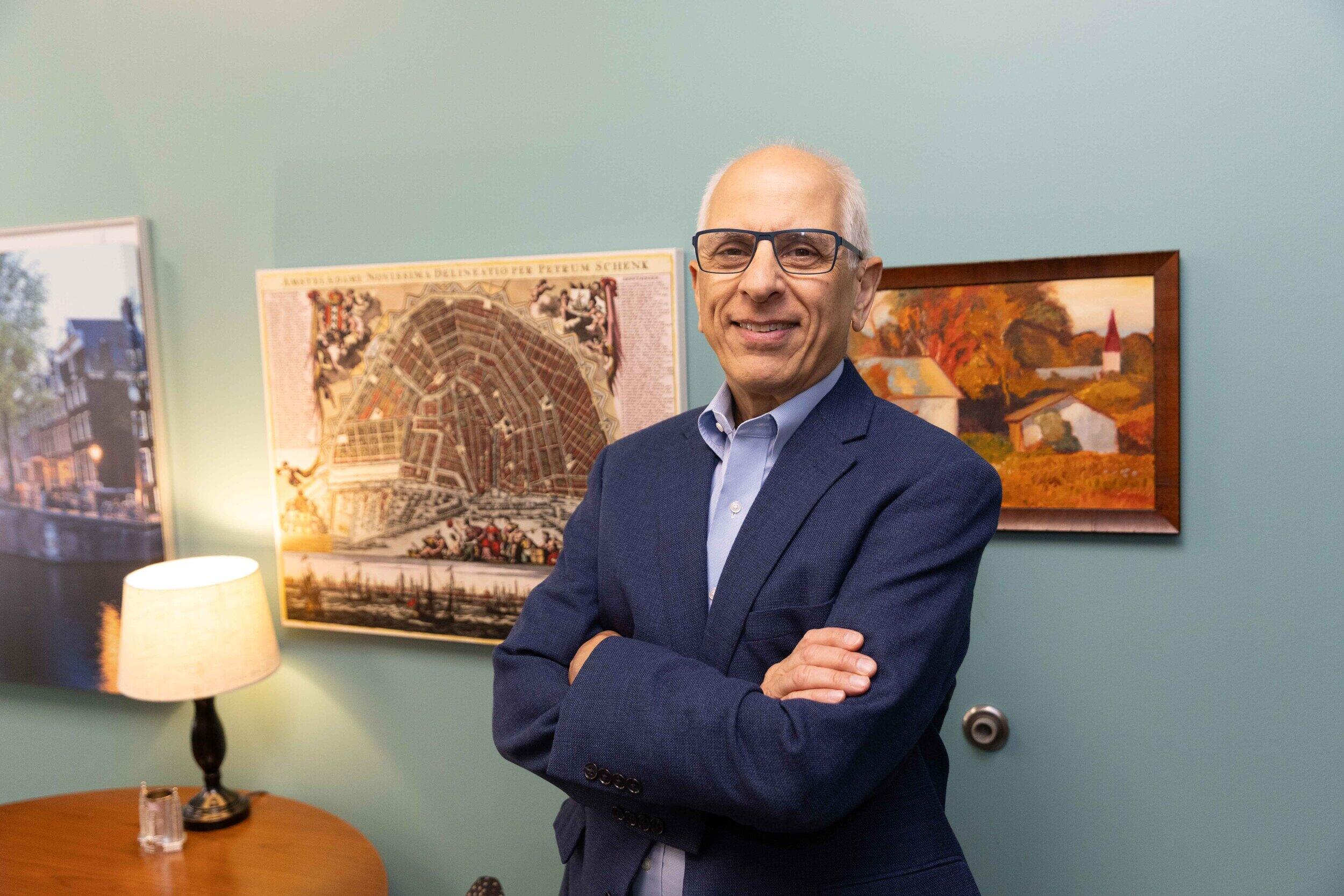From Shockoe to Stuttgart, VCU program shapes urban planning
As a classroom without borders and a collaboration with global stakes, the Trans-Atlantic Seminar brings together Virginia Commonwealth University and a partner school in Germany to tackle complex urban planning challenges in real time.
“If these were easy problems, someone would’ve solved them already,” John Accordino, Ph.D., professor of urban and regional planning and former dean at VCU’s L. Douglas Wilder School of Government and Public Affairs, tells his students on Day One.
Instead, the study-abroad program immerses them in what planners call “wicked problems” – issues like historic preservation, climate adaptation and economic revitalization – across two very different societal contexts.
Launched in 2013, the Trans-Atlantic Seminar pairs Wilder School students in urban and regional studies and planning, as well as public administration, with peers from Rhineland-Palatinate Technical University in Germany. In the intensive three-week summer program, which spans both countries with one travel week in between, American and German students are placed in mixed teams for site visits, lectures and applied group work around a shared planning theme.
Students analyze how each country approaches the same issue, uncovering policy differences, cultural influences and opportunities for mutual learning. They prepare analytical papers and present final group recommendations to a panel of professors and professionals.
In the most recent Trans-Atlantic Seminar in 2024, the theme was “Building Resilient Communities in the Face of Climate Change,” with Richmond’s Shockoe Bottom and the German city of Stuttgart as case studies. Both cities face intensifying heat and flooding but also carry the weight of history: In Shockoe, preservation of its history as a major American slavery market is crucial. In Stuttgart, centuries of heritage shape the urban core.
“You can’t treat it like a greenfield site – it’s not,” Accordino said, referring to previously undeveloped land. “How do you respect that history appropriately and also deal with intense heat and water vulnerability? That’s what planners call a wicked problem.”

After preparatory study, walking tours and consultations with Tom Jacobson, an instructor in the MURP program, planners from the city of Richmond and Plan RVA, as well as professors and planning practitioners in Stuttgart, student groups drafted resiliency strategies that accounted for both climate risk and cultural memory.
Earlier iterations of the Trans-Atlantic Seminar tackled economic revitalization. In 2013, students explored regional development through tourism, comparing Virginia’s Crooked Road with Germany’s Porcelain Route, each a cultural corridor once tied to a now-declining industry.
“The idea was for students to see how two societies use cultural heritage to spark development,” Accordino said. “What are the structures behind it? Who manages the planning? What challenges do they face? What can they learn from each other?”
Beyond planning theories and case studies, the seminar is an exercise in cross-cultural humility.
And for many students, it’s a turning point. They don’t just trade ideas – they rethink how they see the world and their place in it, with the best solutions coming from listening first.
“The goal is not to teach students that one country’s approach is better,” Accordino said. “It’s to sharpen their lens and expand their sense of what’s possible.”
Germany’s differences make it an ideal comparative partner. Its planning system is structured through integrated, national-state-local processes, in contrast to the more decentralized U.S. model. It’s also more compact – about the size of Montana – but with a social market economy that offers useful contrasts for students raised in American marketplaces.
“The two societies are very similar in many respects, but different in key ways, and those differences are where the real learning happens,” said Accordino, whose roots in the Trans-Atlantic Seminar are personal.
“I decided to become an urban planner after living and working in Germany for two years,” he said. “It opened my eyes – not just to how cities elsewhere are set up but to how little I knew about my own.”
This story originally appeared on the VCU Wilder School website.
Subscribe to VCU News
Subscribe to VCU News at newsletter.vcu.edu and receive a selection of stories, videos, photos, news clips and event listings in your inbox.
Latest Student success
- Political science students get crash course in community leadershipUndergraduates Ella Milton-Benoit and Rebecca Weil bring lessons from statewide summer institute back to VCU.
- VCU and Reynolds Community College to launch dual-admission program on Sept. 8.NEXT Step VCU offers cost savings and credit guarantees for students pursuing a bachelor’s degree.
- VCU’s race car team returns to the fast laneWith a new student crew and an electric dream, Ram Racing revs up for the national Formula SAE competition in spring 2026.
- Social work student wins award for tackling a Grand ChallengePh.D. candidate Ya-Li Yang, who is exploring family dynamics in substance use recovery, is one of 14 honorees nationwide.
- How VCU’s reimagined University College will serve all students, regardless of major or academic homeFocused on innovation and interdisciplinary education, the newly relaunched college positions VCU as a national leader in reimagining higher education.
- Patient practice: Simulation training prepares medical students for real patientsThe School of Medicine’s Center for Human Simulation and Patient Safety teaches students to navigate uncomfortable, intimidating and impactful patient interactions that come with being a physician.






